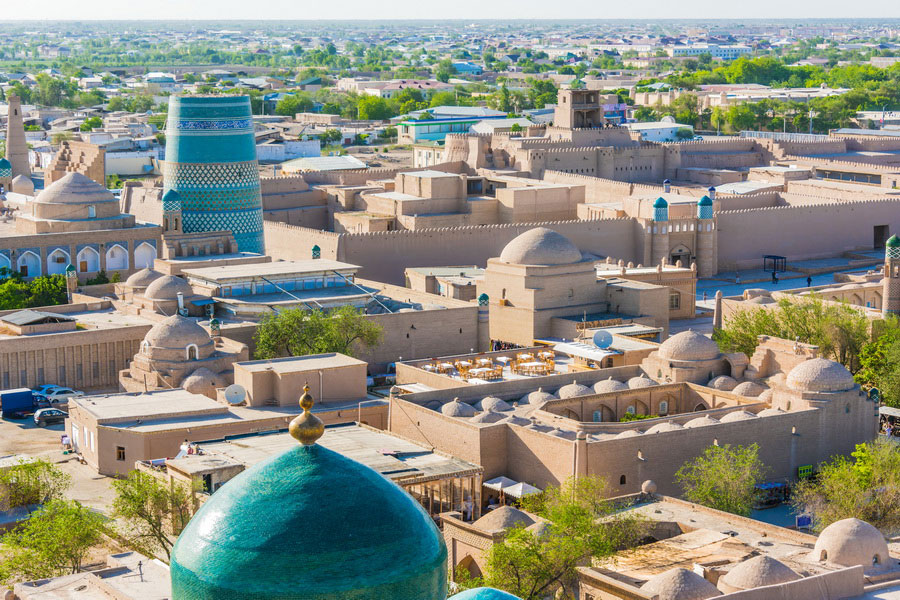Historical Monuments of Khiva

Ichan Kala
Ichan Kala (Ichan-Qala, Ichan-Kala) (literally "internal fortress") forms the internal city of Khiva. The borders of Khiva coincided with that in the 16th-17th centuries. The clay wall over 2,200 m in length and 7-8 m in height surrounded Ichan Kala. The wall was fortified with semicircular towers. The embattled gallery went along the top of wall. Defensive walls of Ichan Kala reliably protected Khiva down to invasion of Nadir-shah in the middle of 18th century. Iranian troops took Khiva and fortification system was partly destroyed. Khiva had expanded at the Qungrad dynasty. By the 20th century its area had been fifteen times as much as Ichan Kala.
Ichan Kala, the historical center of Khiva, was inscribed into UNESCO World Heritage List. There are more than sixty architectural monuments: palaces, mosques, madrassahs, minarets and mausoleums. The fortress of Kunya-Ark was constructed in the 17th century in Ichan Kala for khan's administration. Each of Ichan Kala's four walls has the gates (darvaza). The western gates - Ata-darvaza are located beside Kunya-Ark, the northern - Bahcha-darvaza are on the road to Urgench, the eastern - Palvan-darvaza lead to Hazarasp and the Amu-Darya River and the southern - Tash-darvaza to the Qarakum Desert. Ata-darvaza were destroyed in 1920 and restored in the 1970s.
- Ak-Mosque
- Bagbanly Mosque
- Bathhouse of Anush-khan
- Complex of Pakhlavan Makhmud
- Complex of Sha-Qalandar-bobo
- Djuma Mosque and Minaret
- Islam-Khodja Madrassah and Minaret
- Kalta-Minor Minaret
- Kunya-Ark. Kurinysh-khona. Ak-Sheikh-bobo. Mosque of Allakuli-khan
- Madrassah of Amir-Tura
- Madrassah of Arab khan and Muhammad-Amin-inak
- Madrassah of Khurdjum and Allakuli-khan
- Madrassah of Kutlug-Murad-inak and Abdulla-khan
- Madrassah of Matniyaz-Divan-beghi
- Madrassah of Muhammad Amin-khan
- Madrassah of Muhammad Rakhim khan
- Madrassah of Shirgazi-khan
- Monument of Al-Khorezmiy
- Palvan-Darvaza Gate
- Tash-hauli (palace of Allakuli-khan)
- Tim and Caravan-Serai of Allakuli-khan
Dishan-Kala:

